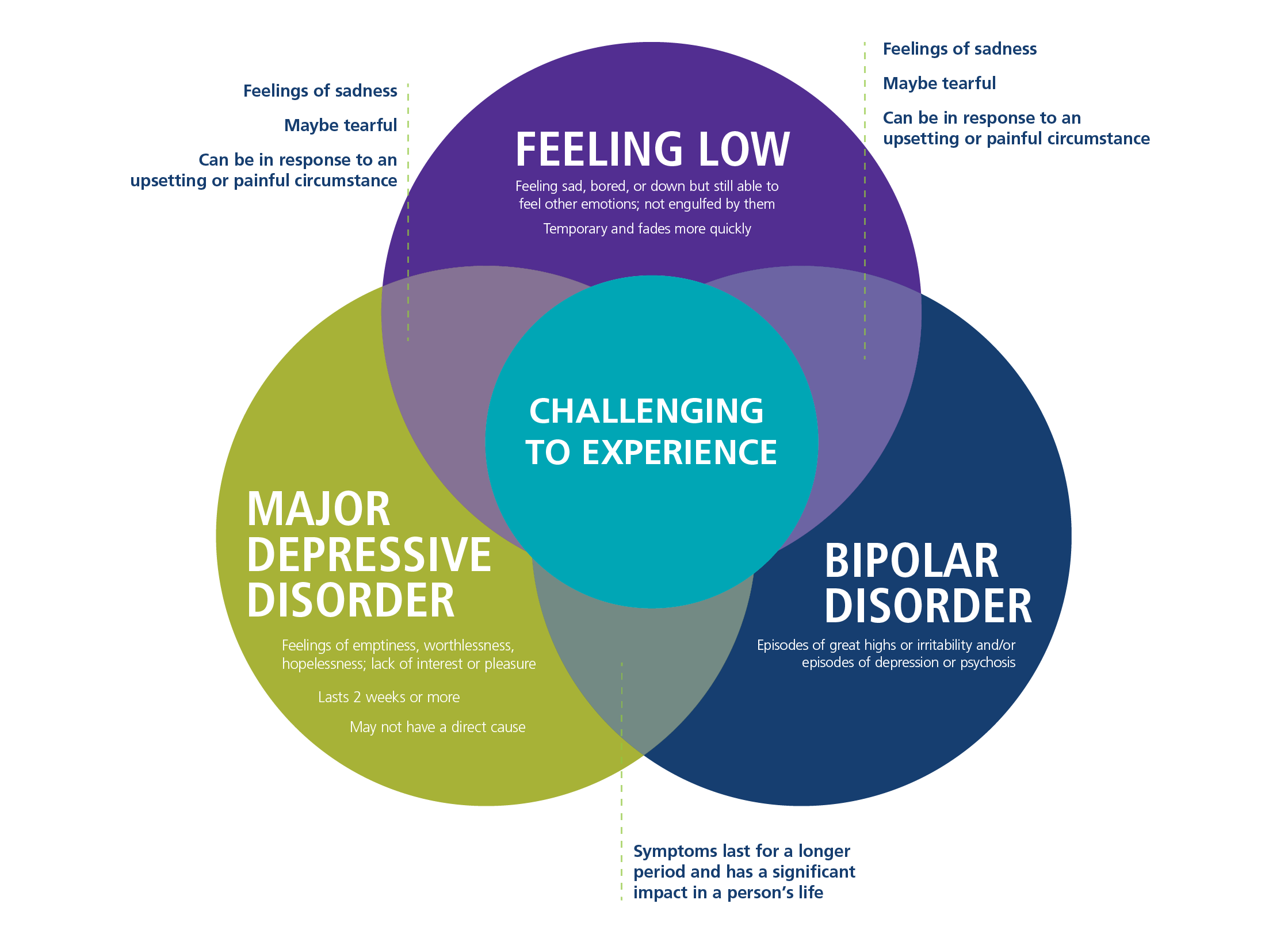It’s important to know that there are differences between feeling low and experiencing a mental health issue, such as depression or bipolar disorder, in order to identify the right pathways to care.
Is it More Than a Bad Day?
Are you, a friend, loved one, or colleague experiencing a bad day? Or is it more than that? Either way, there are tools and resources available to help.
While depression, bipolar disorder, and feeling low are all undoubtedly challenging to experience, they are not the same. For example, depression or bipolar disorder are longer-lasting and can significantly affect all aspects of a person’s life including their memory and ability to focus. While these illnesses are potentially invisible to others, people living with depression or bipolar disorder may require certain accommodations to perform at their best at work or at school.
Mental health issues are common. The best way to support others who are struggling is to create safe, nonjudgmental relationships and communities that make it easier for them to seek help before their situation reaches crisis level. There is no such thing as “not bad enough” to seek mental health services and support.
Use the resources below to learn more.
Bipolar disorder and depression can be difficult to distinguish because:
- People with bipolar disorder and people with major depressive disorder all experience depression. People with bipolar will also have manic or hypomanic episodes while people with just major depressive disorder won’t have the mania.
- People with bipolar disorder can be severely depressed for a period of weeks, months, or even years before entering a manic (elevated and/or irritable) or hypomanic period. They may even experience multiple depressive episodes in a row before ever having a manic/hypomanic episode.
- People experiencing hypomania may not recognize it because hypomania may appear and feel like productivity, happiness, increased energy, and feeling “good.”
- Culture plays a key role in how individuals perceive and experience mental illness. For more information about mental health across diverse communities, check out Each Mind Matters.
For more information about signs and symptoms of depression, bipolar disorder and other mental health issues, take a look at the National Institute of Mental Health’s website.
Note: Signs of struggle vary. As friends, loved ones, and colleagues, our job is not to diagnose issues but to educate ourselves, pay attention to changes in behavior (i.e. changes in eating or sleeping patterns), and be there to support others along their journeys. Learn more here.
What You REALLY Need to Know about: Depression

Depressive symptoms aren’t always situational or caused by a traumatic event: It may feel relatable or easier to understand when a friend is experiencing depressive symptoms after the loss of a loved one, loss of a job, or other traumatic events. However, Major Depressive Disorder can also occur without a clear, situational cause. It’s important to check in on those in your life who may seem to “have it all together” or who you see as having “no reason to be depressed.”
what depression feels like:

“A hole filled with bats and other stuff that you fall into.”

“A predator that stalks after you, always waiting for that right moment to strike.”

“A sinking boat with no one around. Absolutely no one.”

“A rain cloud that follows you around.”

“A roommate in the apartment of my mind. It’s sometimes alright as a roommate, and at other times it takes up so much space, it's hard to do anything.”

"Like you are tethered to someone you dislike, 24/7.”

“Like an old phone battery that doesn't hold its charge like it used to.”

“Like avoiding a salesperson at your door.”

“Trying to walk under water, like a weight of exhaustion has taken over your body.”

”A dark, looming beast that engulfs you and snuffs out the light.”

“Being locked in a dark closet all alone.”

“Having a black screen on your computer when you try to play a video in full screen.”
What You REALLY Need to Know about: Bipolar Disorder
There are actually different types of bipolar disorder and different ways it is diagnosed. Generally, people living with bipolar disorder experience both depressive episodes and manic or hypomanic episodes. You may think of mania or hypomania as just feeling abnormally upbeat or excited about life, but it can actually present in different ways such as:
- Feeling jumpy or wired
- Increased activity, energy, or agitation
- Exaggerated sense of well-being and self-confidence (euphoria)
- Decreased need for sleep
- Unusual talkativeness
- Racing thoughts
- Distractibility
- Impulsive decisions or risky behavior
Mania can sometimes result in a break from reality (psychosis) that could include hallucinations or delusions. Hypomania is a milder form of mania and can include feeling more happy, irritable, talkative and/or energetic than usual over a period of just a few days. Learn more about how to help someone experiencing severe mania or psychosis and other mental health issues here.
there are different types of bipolar disorder that people can experience:
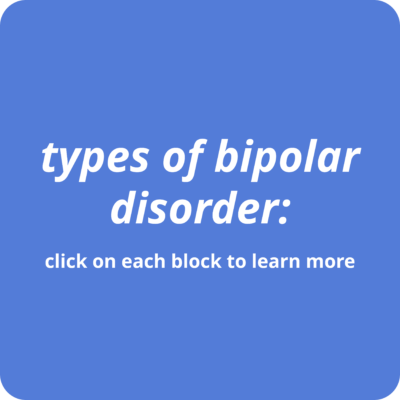
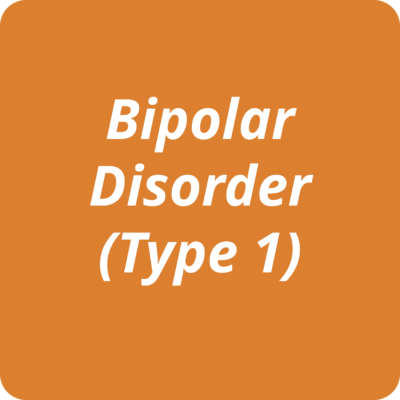

Bipolar Disorder (Type 1): has experienced a manic episode resulting in disruptions in relationships, school, or work. It is not necessary for someone to experience a depressive episode to be diagnosed with Type 1, but the manic episode can be followed by hypomanic or depressive episodes.
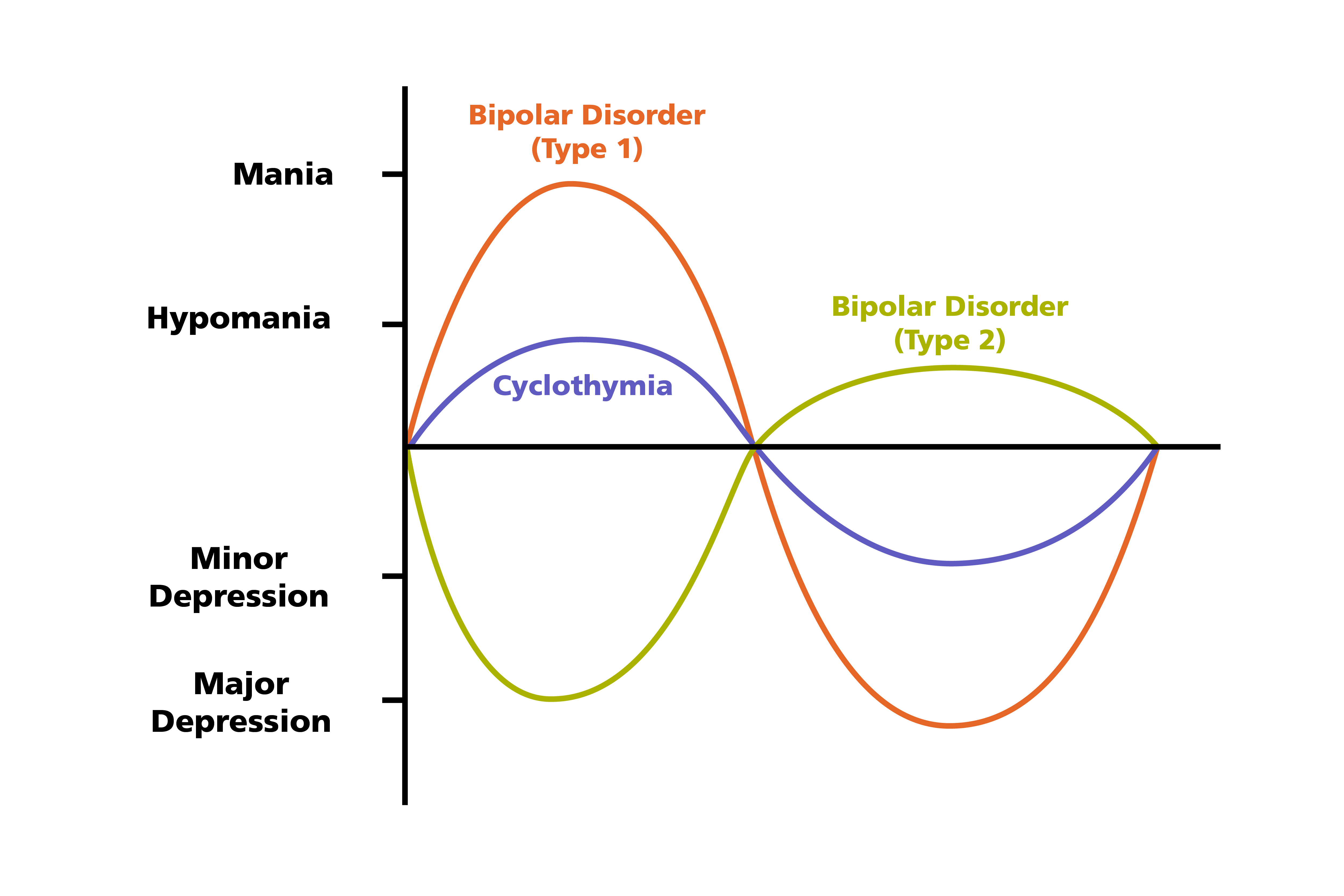
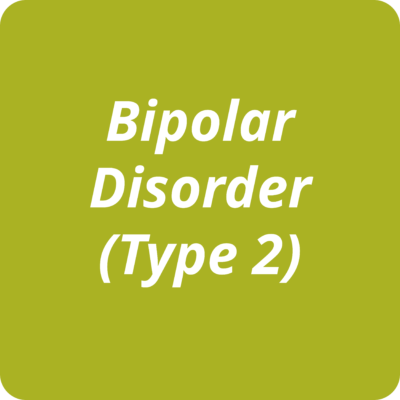

Bipolar Disorder (Type 2): has experienced one or more depressive episodes and one or more hypomanic episodes, but no manic episodes.

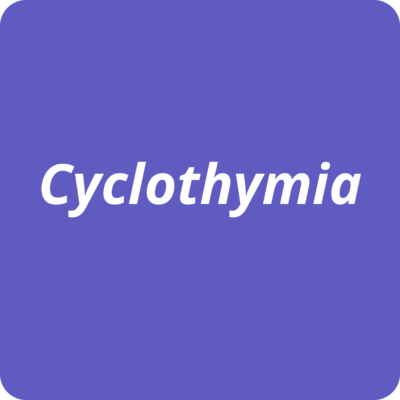

Cyclothymia: has experienced periods of depressive symptoms and hypomanic symptoms, but are not characteristic of full depressive or hypomanic episodes.

Other important things to know:
- Although each type results in mood disruptions, the presentations often look very different from one another.
- People living with bipolar disorder can experience mixed episodes — simultaneous symptoms of depression and mania.
It’s important to keep in mind the cultural context of how mental illnesses have been studied, diagnosed, and assessed in the United States. Symptoms can present differently for people of different races, ethnicities, genders, and more. For example, research shows that Black individuals in the US are more likely to be under-diagnosed with bipolar disorder and over-diagnosed with schizophrenia. This could potentially be attributed to racial stereotypes, cultural differences in the interpretation of symptoms, and cultural variations of clinical presentations of bipolar disorder.
the language we use matters
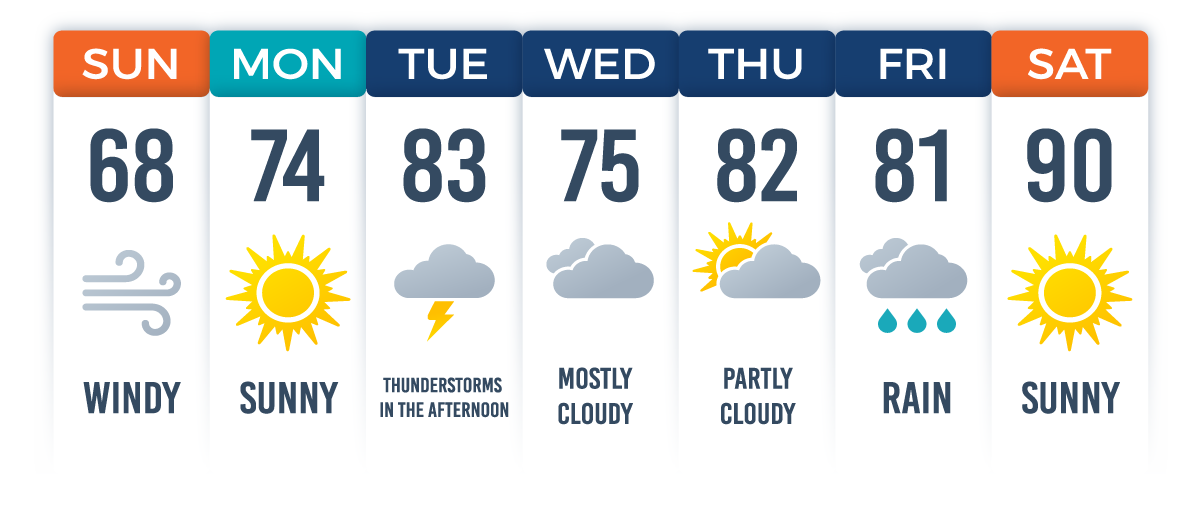
the weather can’t be bipolar
The images we often associate with bipolar disorder are not accurate. Phrases like “the weather is so bipolar” perpetuate the myth that a person with bipolar disorder fluctuates between moods at the drop of a hat or displays exaggerated, intense, or uncontrollable emotions. Read more here.


